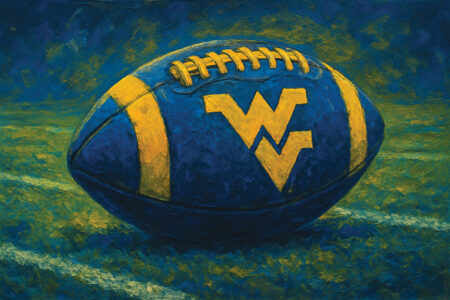Look Back: Log cabin living

(Look Back with Bob Enoch - Photo Illustration - MetroCreativeConnection)
LOCAL WOMAN RECALLS DAYS IN LOG CABIN
Many Unusual Happenings From Her Early Life Recalled by Mrs. Celia Jane Miller
By Cordelia Moellendick
Wooden knives and forks whittled by her father at night out of hickory wood by the light of a pine knot torch were the only cutlery Mrs. Celia Jane Miller, of 1126 Latrobe street, [Parkersburg] ever had seen or handled until she was quite a large girl.
Her first taste of what was then thought poisonous, the Jerusalem apple (tomato), brought out the castor oil, raw milk and eggs and every known remedy for ptomaine poisoning, and swallow it she must.
“Strange as it seems,” says Mrs. Miller, “I didn’t die [after eating the tomato], and it wasn’t long until another raid was made on the beautiful bed of Jerusalem apples raised exclusively for their beauty, children being warned never to touch as they were rank poison. This time my brother Lafe and I cooked them, skins and all, when our parents were away and sweetened the mess with sorghum. When my parents returned the younger children told on us. ‘Mother,’ said my little sister, ‘Lafe and Celia cooked us a big dish of Jerusalem apples and oh mother they were so good, let’s have some more.’ That night we had another big dish-full of tomatoes, and after that my parents no longer believed them poisonous.”
Lived in Log Cabin
Mrs. Miller, who resides with her son and daughter-in-law, tells of many unusual happenings from her early life. Born April 2, 1855, at a place called Hagley in a nearby county, she was brought to Ripley, Jackson county, when but six weeks old, where her father, Samuel Rhodes, had bought land. “He built a crude cabin,” she said, “which had no windows, nothing but one door and a great fireplace across one end of the cabin. We had no furniture except that which my father made. Our beds were saplings, or poles brought in from the woods and run through the holes in the walls that had been bored for that purpose. On these were laid our straw ticks. Our chairs were logs set upright and a portion left to form the back. Even our shovel was made of wood, with which we lifted the hot coals onto the lid of the skillet to bake our bread. Our bread was baked over the open fire – we took a big wooden tray and put in flour and meal and poured in sour milk and stirred the mixture until we could form what was known as hobies. These we dropped into the hot skillet and covered with a lid and hot coals. Inside the huge fireplace were three pot hooks where three heavy iron pots of food could be hung to cook away while the bread was baking. We made everything we wore and all our utensils.
“One day word came that a man had died who lived miles away and his folks had stock and furniture for sale. We children did not know what furniture was, but our father went to buy another horse. He came home with four beds, the first any of us kids had ever seen. They were the kind that were threaded with ropes on which the tick and feather-bed rested. We thought we were rich then.
To be continued…
The Parkersburg News,
July 2, 1939
***
Bob Enoch is president of the Wood County Historical and Preservation Society. If you have comments or questions about Look Back items, please contact him at: roberteenoch@gmail.com, or by mail at WCHPS, PO Box 565, Parkersburg, WV 26102.






